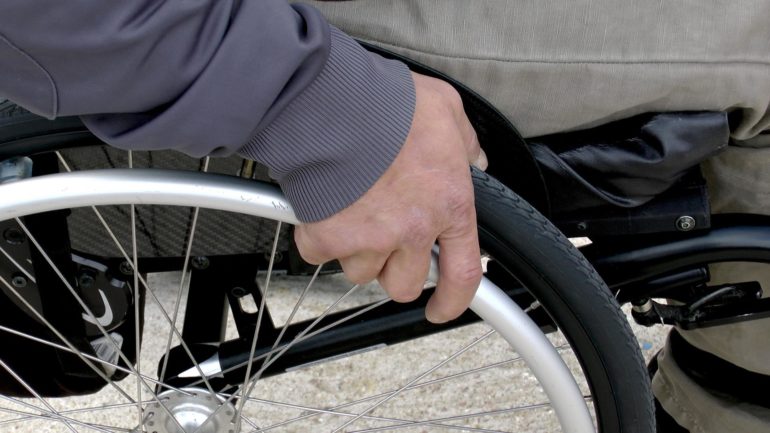
According to the German Federal Statistical Office, more than 7.8 million people in Germany live with physical, mental or sensory disabilities. They are often disadvantaged on two levels by their limitations:
1. In their physical environment, i.e. the “real world”, everyday life becomes a challenge for those affected by a lack of accessibility in buildings. They are often unable to get to destinations in buildings on their own.
2. On websites or in mobile apps, i.e. in the “virtual world”, insurmountable obstacles also frequently arise: If accessibility functions are lacking, the user cannot access content without help.
The solution is digital accessibility
The goal of universal accessibility therefore comprises both accessibility to the real environment and digital services. For example, the user interface of apps must be designed in such a way that it can be used equally by people with and without disabilities and without outside help.
Public authorities of the federal government are showing the way. They increasingly require accessibility in both areas: On the one hand, according to DIN standard 18040 “Barrier-free construction”, public buildings must be accessible to everyone. By 2022, local public transport (e.g. railway stations) must be “completely barrier-free”. On the other hand, the German Equality for the Disabled Act (BGG) provides for the design of barrier-free websites by June 2021. They must be user-friendly, easy, and intuitive to use.
The best way: Combining both with each other
In addition to guidelines and legal framework conditions, individual companies can also contribute to digital accessibility with their solutions. contagt is intensively engaged in the conception of accessible guidance systems in order to solve the physical and virtual requirements holistically. Through the integration of route calculations with avoidance of stairs, audio output, and the use of simple language, missing elevators or stairs are no longer a problem.
The smartphone thus becomes a smart helper for all users – with or without disabilities. And building operators also benefit. They can solve accessibility challenges in a highly efficient digital way!

